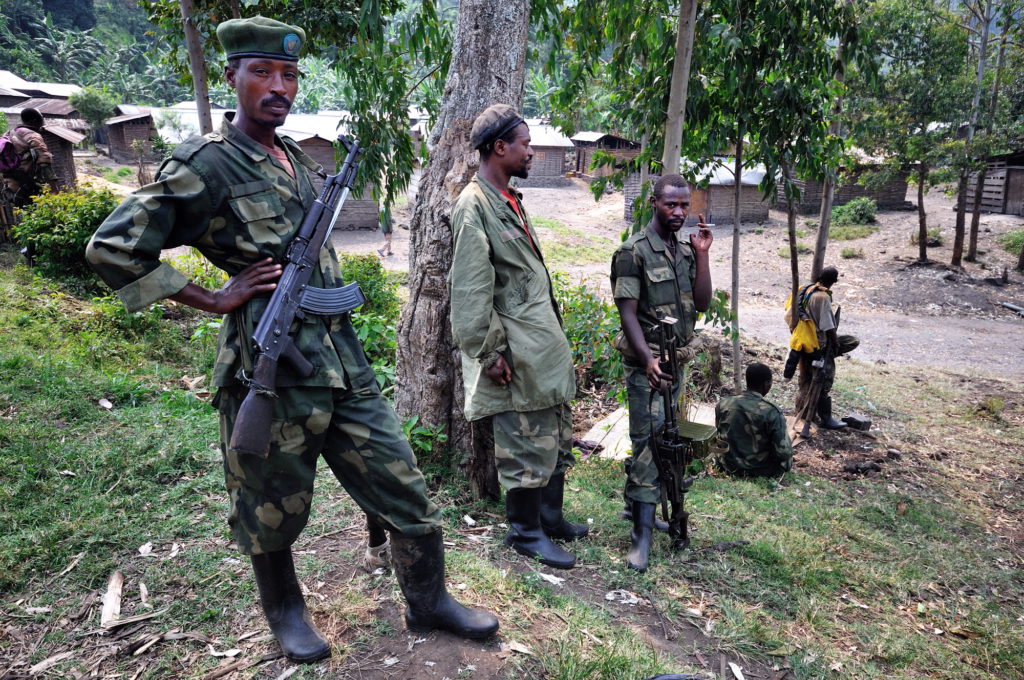Congo demands international embargo on Rwandan mineral exports

Democratic Republic of Congo called for an international embargo of metal exports from neighboring Rwanda, whose government it accuses of using rebel groups to steal its natural resources.
All mining products from Rwanda should be considered “blood minerals,” because their sale allegedly supports conflict in eastern Congo, Mines Minister Antoinette N’Samba Kalambayi said in a May 8 statement released on Tuesday. “All stakeholders, including end consumers of mining products,” should commit to a responsible supply chain, and “an embargo be decreed against Rwanda,” she said.
The minister’s plea follows the takeover earlier this month of Congo’s largest mines of tantalum, a key mineral in portable electronics, by the M23 rebel group. Congo and United Nations experts say M23 is backed by Rwanda, which is now receiving the smuggled tantalum and warehousing it for future sale, she said.
Rwanda’s government has repeatedly denied it supports M23. Last month, government spokesperson Yolande Makolo told Bloomberg that accusations that Rwanda is stealing minerals is “a scapegoating strategy” by the Congolese government to cover up its own “security and governance failures.” Makolo didn’t respond to a request for comment Wednesday.
Eastern Congo’s minerals have fueled conflict for decades and international efforts to stop it have had limited success.
Exports of tin ore, tantalum, tungsten ore and gold from the region are supposed to be certified and tagged through several initiatives to enable buyers to identify the source of their metal purchases. In reality, many of those tracing systems are collapsing as conflicts proliferate throughout eastern Congo, leading to the displacement of more than 6 million people.
Last month, lawyers for Congo’s government complained to Apple Inc. that it was supporting the war by indirectly buying stolen minerals through Rwanda for its products. Apple said it did due diligence on its supply chain and found no links to conflict.
The M23 has been Congo’s chief concern since the group launched its most recent rebellion in late 2021 amid worries that the rights of ethnic Tutsis were under threat in the country. The group has surrounded the city of Goma since the beginning of the year, blocking key trade routes and expanding its territory.
The trade in minerals from the region is worth billions of dollars annually. A large share escapes formal export channels. In some cases, armed groups profit from the sales.
Minerals have become a pillar of Rwanda’s formal economy in recent years, with exports nearing $1 billion over the past fiscal year, Rwandan central bank data shows. Rwanda’s entire gross domestic product is about $14 billion, according to the International Monetary Fund.
(By Michael J. Kavanagh)
{{ commodity.name }}
{{ post.title }}
{{ post.date }}




2 Comments
Berenice
It’s absurd that this war of the territory still until now, many people are dying, children, women, old people. Women are been brutally violent had their intimate part cut, they cry They cry desperately for help, but no nation effectively supports these poor suffering people…
They cry desperately for help, but no nation effectively supports these poor suffering people…
Eles clamam desesperadamente por ajuda, mas nenhuma nação apoia eficazmente estas pobres pessoas que sofrem…
They cry desperately for help, but no nation can effectively help these poor suffering people…
Eles clamam desesperadamente por ajuda, mas nenhuma nação pode efetivamente ajudar essas pobres pessoas que sofrem…
Because of interests in mineral resources, many people are losing their lives in this conflict…
The Ruandez territory does not have so many resources that prove the export of such a quantity of gold, metal and other natural resources, an investigation carried out in the territory should be conditioned.
DON KAKIM
You keep your borders open with that country and ask others to impose an embargo, it that possible? Drc must must close it borders with Rwanda and Uganda, recalls the ambassadors, then think about the international communities.